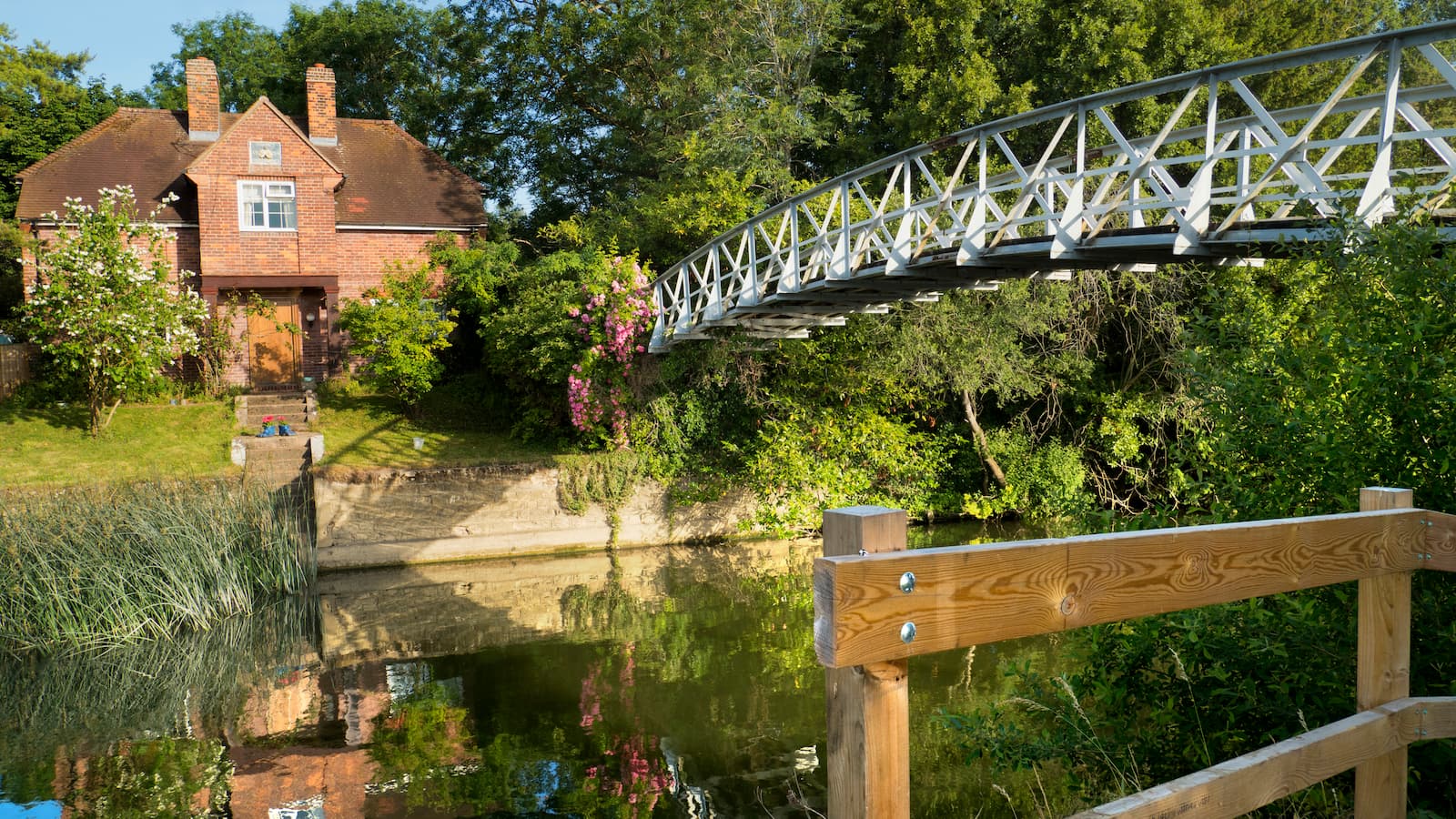What are the parties' environment policies for the General Election 2024?
Environmental policies will have a big impact on homebuilders and we reveal the main stances each of the UK's major political parties are taking

As the UK grapples with rising water and air pollution, along with the challenge of balancing declining habitats and the growing need for housing, environmental policies have become a crucial topic in the upcoming general election.
The environment encompasses everything from how we gain planning permission for new homes, to water and energy supplies environmental policies can have a significant effect on homebuilders and renovators.
Here, we summarise the key environmental policies of the major political parties and the impact they can have on you.
Conservative's environment policy
The Conservative Party have announced a continuation of their current environmental plans such as their biodiversity net gain plans.
As part of their biodiversity proposals homebuilding projects must achieve at least a 10% improvement in local environments to receive planning permission to halt species decline by 2030.
The Conservative Party have also announced a ban on the sale of new petrol and diesel cars by 2030, moving the target forward by ten years to combat air pollution.
The £12 billion plan includes accelerating the rollout of electric vehicle charge points and boosting the development and mass production of electric vehicle batteries to reduce emissions.
Get the Homebuilding & Renovating Newsletter
Bring your dream home to life with expert advice, how to guides and design inspiration. Sign up for our newsletter and get two free tickets to a Homebuilding & Renovating Show near you.
Although, the transition to electric vehicles will be eased from 2030 to 2035, aligning with similar global efforts. The government also emphasised that there will be no new rules on carpooling, multiple recycling bins, more expensive meat, or taxes to discourage flying.
Labour's environment policy
Labour's environmental policy, known as The Green Transformation, is dedicated to meeting the Paris Agreement's goal of limiting global temperature rises to no more than 1.5°C.
Labour has committed to investing in social and infrastructural measures to adapt to climate change in a way that prioritises the most vulnerable in our society.
They have also said they will target water companies that pollute rivers with automatic and severe fines, give greater powers to regulators to block bonuses to heads of water companies and even pursue criminal action against polluting water bosses.
Ultimately the party are seeking to bring water into public ownership in order to lower water bills and fix major sewage pollution incidents.
Similar to the Conservatives they are seeking to reverse the decline of biodiversity by protecting natural habitats and achieving nutrient neutrality.
Liberal Democrats' environment policy
The Liberal Democrats are also seeking to end sewage pollution by water companies by blocking bonuses for water bosses, replacing Ofwat with a stricter regulator and by turning water companies into "public benefit entities".
They have also set targets to double the size of natural environments by 2050 as well as doubling the amount of animal species.
The Lib Dems are also aiming to plant at least 60 million trees annually to aid in reaching net zero and say they will provide more funding to the Environment Agency and Natural England to protect the environment.
To support farmers and rural homeowners, environmental initiatives aimed at restoring woodland and peatland, creating new natural flood defences, and managing land to encourage species recovery have also been announced by the Lib Dems.
Reform's environment policy
In their 'Our contract with you' draft manifesto the Reform Party proposes nationalising 50% of key utility companies, including energy and water but they do not specifically mention any action against air or water pollution.
They have also said they will remove carbon emissions targets and boost fossil fuel energy by accelerating North Sea oil and gas licenses and opening new coal mines and nuclear power plants.
Scottish National Party's environment policy
The Scottish National Party (SNP) have introduced legally binding targets to achieve net zero by 2045, five years before the UK Government's target.
They have also promised that fracking and underground coal gasification will not take place and whilst advocating against further exploration of North Sea oil and gas the SNP has criticised the Conservative's approval of the Rosebank oil field.
The SNP also opposed the Conservative's policy to delay the ban on new petrol and diesel from 2030 to 2035.
Green Party's environment policy
The Greens have proposed a "Nature Act" that they hope would "protect and restore the natural world".
They are aiming to reduce water pollution to ensure beaches and rivers can be used freely, save marine life and safeguard tap water.
They have also said they will create a Green Grid strategy to identify, improve and protect local green spaces and monitor air pollution in order to provide warnings ahead of "major air pollution events".
The Greens also want to raise awareness about the environmental harm caused by wood and coal burning and assist people in transitioning from open fires and wood burners, aiming to phase them out by 2028.
Other parties' environment policies
The DUP have yet to release their full manifesto although Plaid Cymru Will be publishing their manifesto on June 13th.

News Editor Joseph has previously written for Today’s Media and Chambers & Partners, focusing on news for conveyancers and industry professionals. Joseph has just started his own self build project, building his own home on his family’s farm with planning permission for a timber frame, three-bedroom house in a one-acre field. The foundation work has already begun and he hopes to have the home built in the next year. Prior to this he renovated his family's home as well as doing several DIY projects, including installing a shower, building sheds, and livestock fences and shelters for the farm’s animals. Outside of homebuilding, Joseph loves rugby and has written for Rugby World, the world’s largest rugby magazine.
